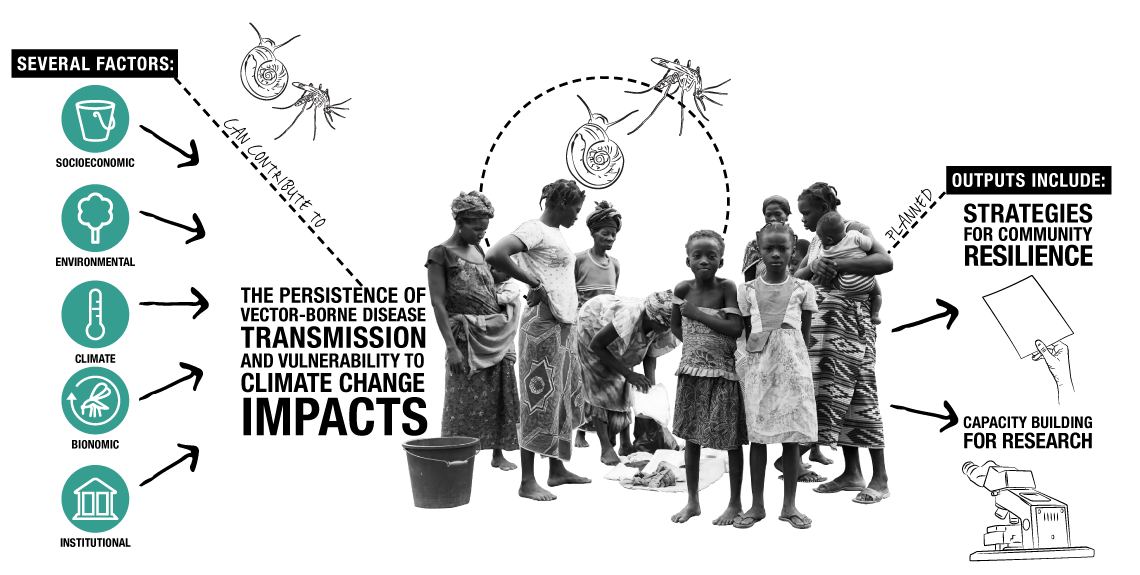
Vector-borne diseases (VBDs) are prevalent in Southern Africa particularly in poor and vulnerable communities. Socioeconomic, environmental, climatic, bionomic and institutional factors are the major drivers of VBD transmission. With the effects of climate change, the distribution and prevalence of VBDs are likely to increase. The Malaria and Bilharzia in Southern Africa project (MABISA) has provided an opportunity to understand the likely impact of climate change on malaria and schistosomiasis in specific socio-ecological systems in Botswana, Zimbabwe and South Africa. The project aims to produce strategies for community resilience and to build capacity for research.
Why this project?
There are several factors that influence the occurrence of VBD infections. Most important of these are: climate, ecosystems, human behaviours, vectors and disease parasites.
This project aims to better understand these factors and help vulnerable populations. The researchers want to develop decision-support tools to improve early detection, early action and adaptation mechanisms, to increase population resilience to vector-borne diseases.